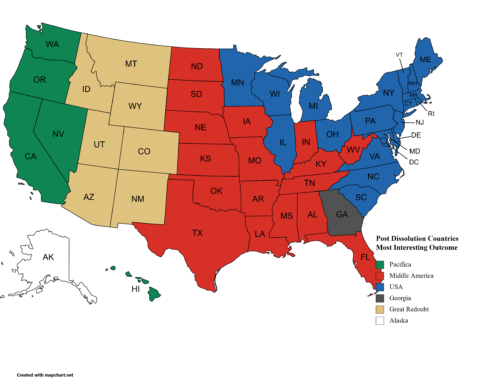There are few people who have not read the original or watched a TV version of Charles Dickens’s, A Christmas Carol. As a story of a life redeemed, it is one that few people I’ve ever met can say anything negative about. Sure, we love to go see the play at Ford’s Theater or our local town production. For those who have never listened to the Patrick Stewart one-man stage play in which he acts out every character in the story, you owe yourself the small time to be moved as everyone is who has ever heard it.
But what does this all have to do with business? Is there really anything that Dickens can teach today’s leader or CEO? I say absolutely yes.
First, nobody is an island. You might begin with noble intentions, but if you are not careful, no matter how good a business man you are, you can begin to lose sight of your place in the world. You may have a brilliant mind. You may have a great business model. You may have unparalleled negotiating skills. But you are still one person in the midst of a society all around you. You rely on your people to do their jobs, your suppliers to deliver your raw materials, your customers to purchase your product, the utilities grid to give you electricity and water and gas. Even if you are a sole proprietor, it is unlikely that you do everything yourself, and even if you do, you rely on customers.
This all means that you have to work in a world of relationships. Dickens’s Scrooge bitterly mocked his clerk, Bob Cratchit, for showing Christmas cheer to Scrooge’s nephew, not so much because Scrooge disliked Christmas, but because he so poorly paid Cratchit and expected him to be sullen and morose. On the other hand, when viewing his youth, Scrooge admits that his first employer, Old Fezziwig, had the power to make his life burdensome or light, misery or goodness, and that for a few pounds ($$), he made everyone happy with a tremendous Christmas feast and party. Even the poor miners coming out of the coal mines and the lonely lighthouse keepers off the coast show cheer towards each other when the wealthiest man in town, the shrewdest businessman was cold and eating alone and was happy to be so.
Second, the allure of money is insidious. In some ways I think it is better for a person to admit that he or she is just interested in making as much money as possible than to say he cares about his people and to slowly, over time, lose sight of that. In the beginning, Scrooge was not in love with money, but over time, it proved a stronger mistress than his love for Belle, his relationship with his sister’s son, Fred, and his relationships with anyone else. He denies this truth to Belle by saying that he has grown wiser in a hard world, yet walks away without apparent regret when Belle releases him from his marriage proposal made when he was poor. And when Jacob Marley visits him and tells him that the chains and iron boxes he drags were forged in their counting house, Scrooge says, “But you were always a good man of business.” To which Marley reminds Scrooge that humanity and the common welfare were his business.
Third, it is never too late to make things right. When Scrooge wakes up on Christmas morning, he isn’t merely saved from an early death. This is the one part of the story people most forget. His waking is just the start of making good on the promise to amend his life and use his position for the betterment of those around him. Dickens doesn’t write Scrooge out of business. He doesn’t go from rich to working class or make him loose all his money to see what it is like to be poor. This is no socialist redistribution plot. Scrooge continues to be a shrewd businessman, but he uses his money to better Bob Cratchit’s family, help find a cure for Tiny Tim’s malady, restart his relationship with his nephew, and begin giving his money to charity instead of sitting on it. In the end, we can’t take it with us, no matter how much we make. And no matter what you want to do with it, if you don’t do something with it when you’re alive, the state will take it and do something with it after you’re gone.
So no matter who you are, but especially if you are a leader, I urge you to take some time to read the very short novel every year at this time. Even slow readers like me can read the book in a couple of hours. Or listen to the Patrick Stewart reading of the novel. Either way, use this time of year to reconsider where you stand viz-a-viz what you said you wanted to be when you started doing what you’re doing. And if you’re off track, don’t worry, you have plenty of time to make things right, so long as you start now. You might even start by offering your people a hot mug of Smoking Bishop.
“A Merry Christmas, Bob!” said Scrooge with an earnestness that could not be mistaken, as he clapped him on the back. “A merrier Christmas, Bob, my good fellow, than I have given you for many a year! I’ll raise your salary, and endeavor to assist your struggling family, and we will discuss your affairs this very afternoon over a bowl of Smoking Bishop, Bob!”
Keep thinking…





Leave A Comment